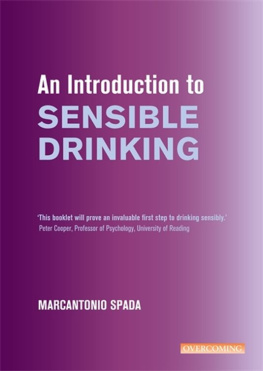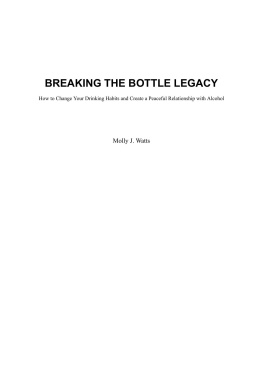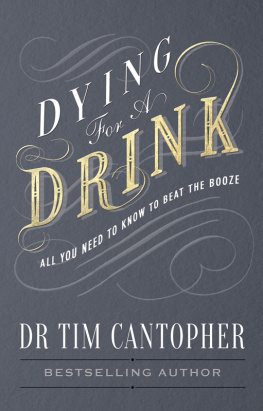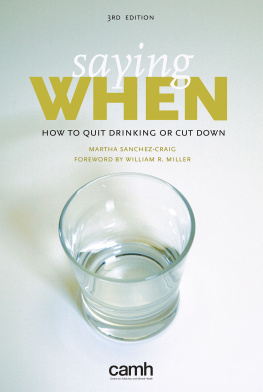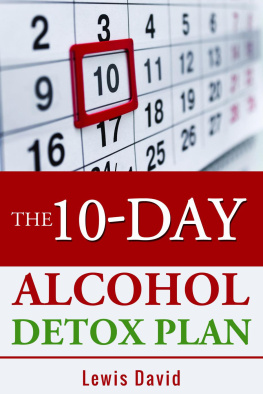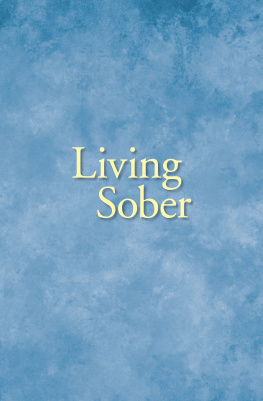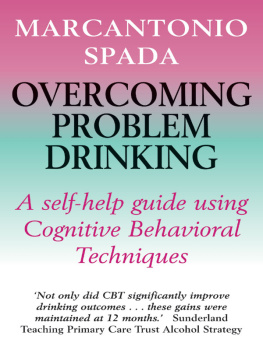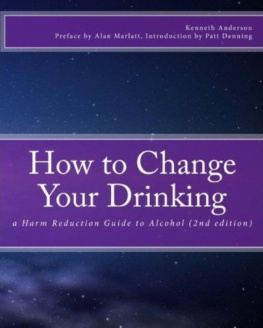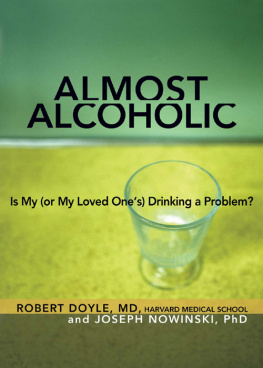Michael S. Levy - Take Control of Your Drinking: A Practical Guide to Alcohol Moderation, Sobriety, and When to Get Professional Help
Here you can read online Michael S. Levy - Take Control of Your Drinking: A Practical Guide to Alcohol Moderation, Sobriety, and When to Get Professional Help full text of the book (entire story) in english for free. Download pdf and epub, get meaning, cover and reviews about this ebook. year: 2021, publisher: Johns Hopkins University Press, genre: Politics. Description of the work, (preface) as well as reviews are available. Best literature library LitArk.com created for fans of good reading and offers a wide selection of genres:
Romance novel
Science fiction
Adventure
Detective
Science
History
Home and family
Prose
Art
Politics
Computer
Non-fiction
Religion
Business
Children
Humor
Choose a favorite category and find really read worthwhile books. Enjoy immersion in the world of imagination, feel the emotions of the characters or learn something new for yourself, make an fascinating discovery.

- Book:Take Control of Your Drinking: A Practical Guide to Alcohol Moderation, Sobriety, and When to Get Professional Help
- Author:
- Publisher:Johns Hopkins University Press
- Genre:
- Year:2021
- Rating:4 / 5
- Favourites:Add to favourites
- Your mark:
Take Control of Your Drinking: A Practical Guide to Alcohol Moderation, Sobriety, and When to Get Professional Help: summary, description and annotation
We offer to read an annotation, description, summary or preface (depends on what the author of the book "Take Control of Your Drinking: A Practical Guide to Alcohol Moderation, Sobriety, and When to Get Professional Help" wrote himself). If you haven't found the necessary information about the book — write in the comments, we will try to find it.
Accepting that there is no one-size-fits-all approach to controlling drinking, the latest edition of this bestselling book will help you assess your drinking and determine whether moderation or abstinence is the best path for you.
For decades, the standard treatment for people struggling with alcohol consumption has focused on convincing them to admit that they are an alcoholic, to stop drinking entirely, and to enter into a program, most commonly Alcoholics Anonymous. But in his more than thirty-five-year career as an addiction specialist working with people who want to change their drinking habits, Michael S. Levy has found that the routes to behavioral change actually vary. And although abstinence is the successful route for many people, others can moderate their drinking on their own or with professional help.
In this practical, effective, and compassionate book, Levy helps people take control of their alcohol problem by teaching them how to think about and address their drinking habits. Beginning with a set of self-assessments that reveal whether the readers use of alcohol is creating problems, Levy explains the causes of problem drinking, discusses the growing recognition of the various ways an alcohol use disorder can show itself, and talks about why it is so difficult to change. Offering advice for choosing between moderating your drinking or abstaining altogether, he also touches on coping with slipups, fighting helplessness and the fear of failure, and knowing when moderation is not achievable.
The book is unique in that instead of telling people what they need to do, it meets people at their stage of change and level of readiness to change and helps them decide for themselves what they need to do. Drawing on the latest scientific evidence, this new edition includes
a chapter on the concept of self-medicationa useful but at times overused idea;
a chapter on the concurrent use of drugs (particularly cannabis) during recovery;
an exploration of modern strategies for dealing with drinking, including technology (apps that count drinks, for example) and medications that curb alcohol consumption;
reflections on the use of stigma;
communication strategies for individuals seeking to share their struggle with others;
an exploration of common triggers;
additional worksheets and tips to achieve success;
further material about self-help programs; and
insights about the dark side of addiction treatment.
Ultimately, Take Control of Your Drinking empowers people to tackle their drinking problem and gives them the freedom to do so in a way that fits with their own lifestyle and values. This book is useful for anyone who may find that they are drinking too much, for the loved ones of such people, and for clinicians who want to broaden their skills when working with people who struggle with alcohol.
Michael S. Levy: author's other books
Who wrote Take Control of Your Drinking: A Practical Guide to Alcohol Moderation, Sobriety, and When to Get Professional Help? Find out the surname, the name of the author of the book and a list of all author's works by series.

